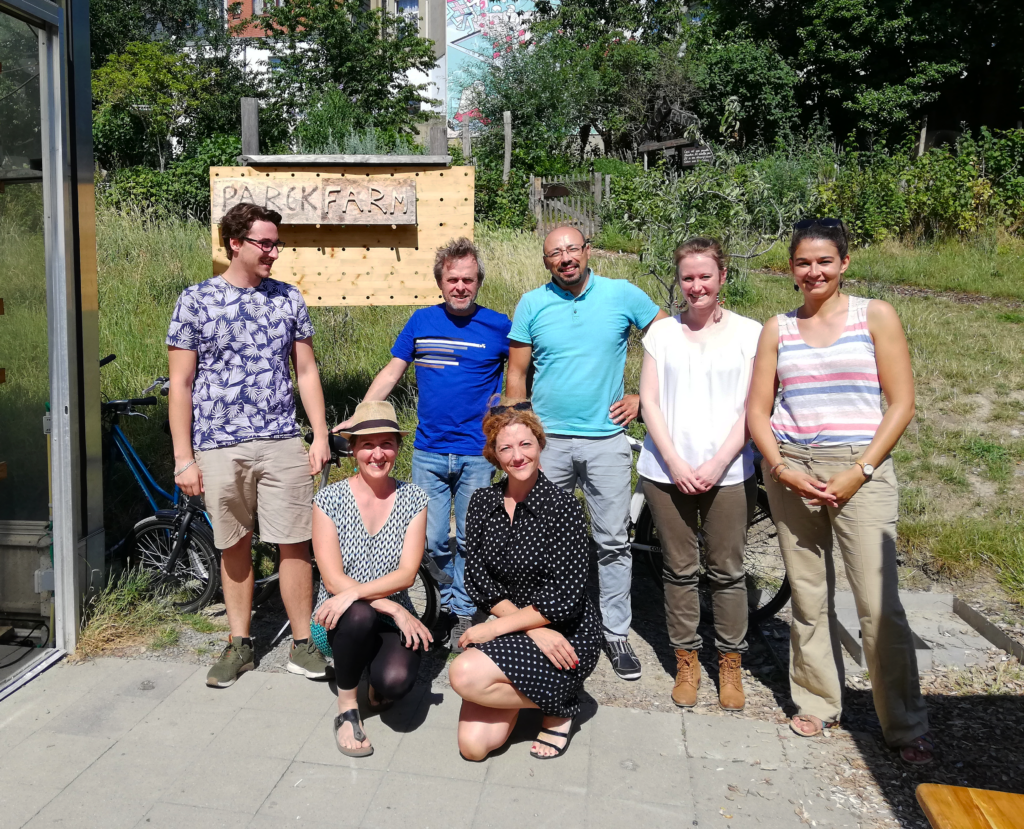
Rue Haute
/// Project
Redevelopment of a social 400 unit housing complex in a dense inner-city neighbourhood fit for the 21st century.

/// Project
Developing community-based urban agriculture in Brussels.
Project: Serre de Bockstael
Client: Ville de Bruxelles | Stad Brussel
Year: 2020
Partners included: Ville de Bruxelles | Stad Brussel
Location: Brussels
Team: Adrian Hill, Hanne Van Reusel
Sector: Public space & community, Production
Services: Business models & financing, User reserach & engagement

Why? The City of Brussels launched “Food for change”, a project to develop urban agriculture within its dense urban fabric. The aim is to focus on local, short supply chain production of food. For this, the closest possible market gardeners and suppliers were targeted. Within the framework of an urban renewal program (Contrat de Quartier Durable Bockstael) a potential production site had been identified but the exact function of this site and how it would be managed in the long-term was unclear.

What? Osmos was commissioned by the City of Brussels to coordinate a participative process to define what kinds of community based agricultural projects could be activated on the site, what kind of infrastructure would be needed and develop a business plan for the realisation. As the end-use could remain unclear until the project was built, it was important not to over-promise any ideas to the neighbours and local residents. As a result, abstract sketches were created to present the general mood, without showing a resolved design. This meant that the design concepts remained conceptual and local residents did not feel threatened. Osmos developed a business plan for the planned greenhouse and provided input to adapt the outline of the plans according to the needs of its future users.
How? Interviews, focus groups and public exhibitions were the main modalities for feedback. Firstly, the project involved reaching out to local organisations actively involved in urban agriculture to identify how this site could support existing initiatives. Secondly, it involved looking at how neighbours and local inhabitants would react to scenarios of how the site could be used. In all events, abstract sketches were used to guide the dialogue.







/// Project
Redevelopment of a social 400 unit housing complex in a dense inner-city neighbourhood fit for the 21st century.

/// Project
Developing community-based urban agriculture in Brussels.

/// Project
Engaging stakeholders in the urban study for a new unified administrative centre.
We’ll send you a very occasional update of what we’re doing and thinking about.
This website uses cookies so that we can provide you with the best user experience possible. Cookie information is stored in your browser and performs functions such as recognising you when you return to our website and helping our team to understand which sections of the website you find most interesting and useful.
Check out our privacy policy and our terms and conditions for more information about how and why we use cookies.
Strictly Necessary Cookies are enabled at all times.
If you disable this cookie, we will not be able to save your preferences. This means that every time you visit this website you will need to enable or disable cookies again.